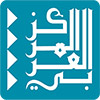
I. Congress
Personnel and Correspondence
Menendez, Others Write Biden Regarding Austin Tice. Senate Foreign Relations Committee Chairman Bob Menendez (D-New Jersey), Ranking Member James Risch (R-Idaho), and Senators Patrick Leahy (D-Vermont) and John Cornyn (R-Texas) wrote a letter to President Joe Biden on January 18 urging him to continue efforts to secure the release of journalist Austin Tice from Syria. Tice has been in captivity for nearly a decade.
II. Executive Branch
1) White House
NSA Sullivan Condemns Houthi Attack on UAE. On January 17, National Security Advisor Jake Sullivan issued a statement condemning the Houthi attack on the United Arab Emirates that killed three civilians. Sullivan pledged US support for UAE security.
2) State Department
Blinken Expresses Concern about Air Strikes in Yemen. Secretary of State Antony Blinken released a statement on January 21 in which he expressed concern about the escalation of hostilities in Yemen following Saudi-led air strikes that killed some 100 people. His statement did not rise to the level of condemning the attacks, but it emphasized the need for a political solution of the Yemen war to end the humanitarian crisis in the country. Blinken also spoke by phone with Saudi Foreign Minister Faisal bin Farhan Al Saud to condemn Houthi attacks on Saudi Arabia and the UAE and to express US commitment to help Gulf partners’ defense capabilities.
US Special Envoy for Yemen Visits Gulf Capitals. On January 19, US Special Envoy for Yemen Timothy Lenderking embarked on a trip to visit some Gulf capitals and London in an effort to reinvigorate peace efforts in Yemen. According to the Department of State’s press release, he will also focus on mitigating the humanitarian crisis in the country.
Two US Diplomats Travel to Saudi Arabia and Sudan to Support Democratic Initiatives. On January 17, new US Special Envoy for the Horn of Africa David Satterfield and top official for Africa Molly Phee traveled to Saudi Arabia and Sudan to work on a reconciliation between Sudanese military and pro-democracy leaders. The effort is in support of a United Nations initiative to help Sudan transition to civilian rule.
Ambassador Thomas-Greenfield Reinstates US Position on Palestine-Israel Conflict. In an address to the United Nations Security Council on January 19, US Ambassador to the United Nations Linda Thomas-Greenfield said that Israel and the Palestinian Authority “must refrain from unilateral steps that exacerbate tensions and undercut efforts to advance a negotiated two-state solution.” Her address also included a call to halt annexation, settlements, demolition of homes, and evictions, as well as “compensation for individuals imprisoned for acts of terrorism.”
3) Defense Department
Israel Gives US Army Officers Tour of Hebron Led by Settlement Spokesman. The secretariat of the Israeli Central Command reportedly arranged a tour of Hebron—designed and led by settlers, in conjunction with the army—for a delegation of US Army officers. The full-day program included a visit to the Tomb of the Patriarchs/al-Ibrahimi Mosque and a visit to the settler-run museum in the Beit Hadassah enclave. The visit empowered settlers to present their version of the religious and historic significance of Hebron while presenting Palestinian history and national and religious ties to the city through the settlers’ lens. The US delegation did not engage with any Palestinians while in Hebron, creating an obvious and problematic imbalance in perspective on all matters.
4) Treasury Department
The US Sanctions Three Hezbollah Facilitators. On January 18, 2022, and under Executive Order 13224, the US Treasury Department sanctioned three Hezbollah-affiliated individuals, Adel Diab, Ali Mohamad Daoun, and Jihad Salem Alame, as well as their travel company, Dar Al Salam for Travel & Tourism. They are accused of raising and laundering funds for Hezbollah, which was designated a Foreign Terrorist Organization in 1997. On January 21, Treasury followed that up with an additional designation that named Adnan Ayad, Jihad Adnan Ayad, and Ali Adel Diab (who is the son of Adel Diab who was sanctioned on January 18), as well as a network of companies operating in Africa and Lebanon.


